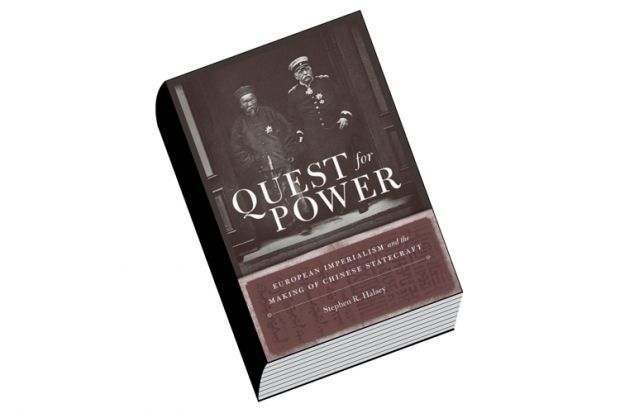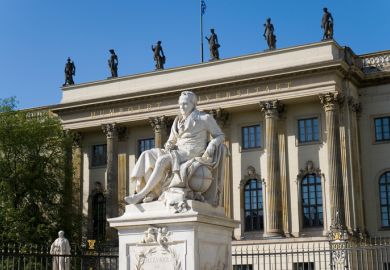In the age of imperialism, as historian Stephen Halsey notes, China did not become a colony. In Quest for Power, Halsey surveys the unequal treaties and extraterritoriality that the great European powers and Japan imposed on China in the decades after the Opium Wars of 1839-1842, without overthrowing the Qing dynasty. Although this “informal empire” is referred to nowadays in China as one of “humiliation”, Halsey emphasises that, far from being humiliated, the Qing adopted fiscal, military and other measures that enabled it not only to survive but also to evolve into the Republic and eventually the post-1949 Communist state.
Halsey contends that his interpretation “transcends” that of other scholars who, in his opinion, mistakenly emphasise the Qing dynasty’s fundamental weakness and near-collapse, and he disparages the notion of an inevitable “dynastic cycle paradigm”, which holds that dynasties rose and fell in inevitable ways. Such a notion, he says, wholly underestimates “the resilience and creativity of political institutions in the late imperial era”, a period of continuous foreign coercion that stimulated reforms and shifts of geographical power within China. These reforms enabled the modernising Qing state to survive and escape the downfall of other Asian countries such as India and Vietnam.
One of the characteristics of 19th-century Chinese, Halsey writes, was their lack of appetite for foreign manufactures, apart from tobacco, kerosene and opium. This contrasts with traditional colonies where native manufactures were typically overwhelmed and displaced.
Uniquely in my reading of Chinese history, Halsey offers the example of opium as one of the signs of Qing resilience. He notes that by the late 19th century, the native-grown product had displaced Indian opium.
“Over time,” Halsey says, in a phrase he employs throughout his book, “Sichuan, Yunnan, Manchuria, and Shanxi emerged as important centers of cultivation...opium tended to replace cereals because it required the most fertile soils.” He describes this as an “impressive commercial accomplishment”, before, and finally, adding the six words “in spite of its social consequences”.
I suppose that many historians will find risible Halsey’s assertion that China’s takeover of the opium trade was a sign of Qing flexibility in the face of imperialism. Similarly, they will have difficulty with his contention that confronting what he correctly terms the “social chaos” caused by bloody mid-19th-century civil conflict such as the Taiping Rebellion was a sign of state power. In fact, as he doesn’t underline, significant European armed forces and leadership were crucial in defeating the Taiping. Similarly, after the Boxer uprising of 1900, Western powers crushed the rebels who had reduced the Qing to total impotence.
I doubt if many historians of recent decades employ the “paradigm” of dynastic decline to understand 19th-century China. Indeed, historians (including myself) do not explain any pre-modern periods in such reductive terms, noting instead long periods of disunity. As for the fact that the great powers and Japan (whose success in staving off the impositions of imperialism Halsey does not explore) did not turn China into a colony – why should they have done so, when the regime, weak as it was, kept the administrative wheels moving? Years ago, historians writing in The Cambridge History of China showed that the Qing’s reformist policies enabled the dynasty to stagger on.
Also unique in my reading of Chinese history is Halsey’s contention that in significant ways the post-1949 Communist state drew inspiration from the Qing by doggedly pursuing “wealth and power”, and seeking full sovereignty. This is true enough, but Halsey describes a totalitarian Communist state that would have astounded the Qing.
Even though Halsey could not have foreseen the recent collapse of China’s stock market, he would have to admit that Beijing’s quest for power is not yet over.
Jonathan Mirsky was formerly associate professor of Chinese, history and comparative literature at Dartmouth College in the US, and former Far East editor of The Times.
Quest For Power: European Imperialism and the Making of Chinese Statecraft
By Stephen R. Halsey
Harvard University Press, 360pp, £36.95
ISBN 9780674425651
Published 29 October 2015
Register to continue
Why register?
- Registration is free and only takes a moment
- Once registered, you can read 3 articles a month
- Sign up for our newsletter
Subscribe
Or subscribe for unlimited access to:
- Unlimited access to news, views, insights & reviews
- Digital editions
- Digital access to THE’s university and college rankings analysis
Already registered or a current subscriber?




